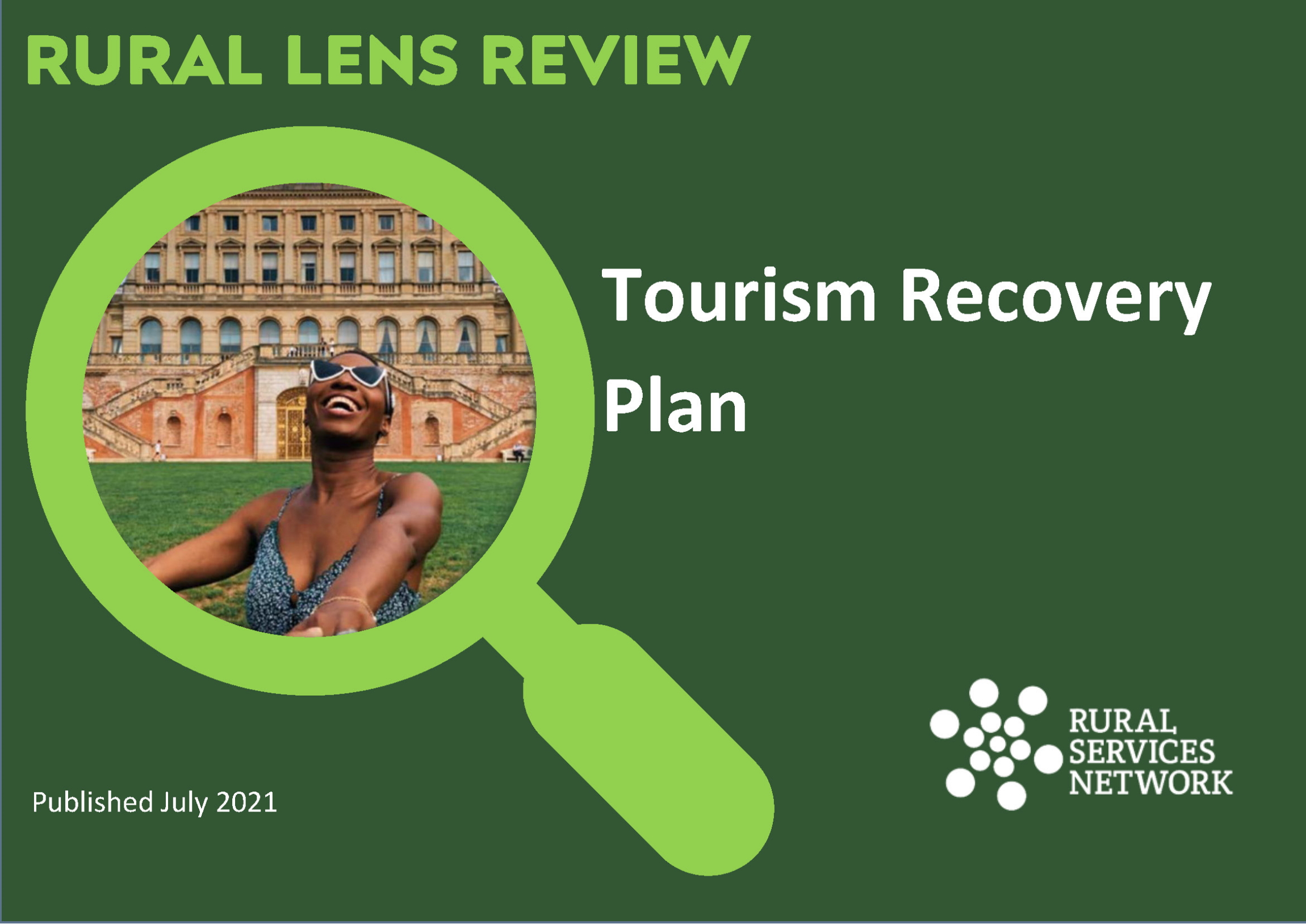T: 01822 851370 E: [email protected]
Tourism Recovery Plan through a Rural Lens
The Tourism Recovery Plan was launched by the Government on 11 June 2021 with promises to help the sector build back better from the pandemic.
It aims to recover domestic tourism to pre pandemic levels by 2022 and international tourism by 2023 – both at least a year faster than independent forecasts predict.
The Rural Services Network has examined the Tourism Recovery Plan from a rural perspective.
As is inevitable with government documents like these, everything is about Tourism Recovery and there is no mention of the wider concerns of the RSN and most other rural stakeholders about the over-reliance on tourism (and other low pay, seasonable employment) in rural economies. To be clear, the RSN supports the development and growth of the tourism sector in rural areas but also wishes to see more diverse rural economies. The plan lacks any mention of the wider economic or social issues which are faced by people, businesses or communities in rural areas and which do themselves have an impact on tourism – this is why the RSN continues to stress the importance of its current campaign, Revitalising Rural: Realising the Vision.
The RSN can see no evidence of rural proofing in the Tourism Recovery Plan. For example key issues such as ‘Remaining globally competitive requires an innovative tourism industry making full use of digital technology and data to enhance the visitor experience. ‘ must consider the fact that connectivity in rural areas is still not sufficient. 274,000 homes and businesses cannot access the Universal Service Obligation of 10Mbps and solutions to drive forward the use of digital technology in rural areas must tackle the poor connectivity issues so that rural tourism businesses are not left behind.
Local Authorities play an important role in supporting tourism, yet local authority financial support to tourism activity, indeed to economic development activity generally, is discretionary expenditure. In rural areas such expenditure has been under severe strain over the last decade or so through ‘the austerity years’ and through increased costs of statutory duties.
- Urban areas in 2021-2022 will receive some 61% (£107) more per head in Settlement Funding Assessment grant more than their rural counterparts.
If the Government wants to embrace the sector to build back better, it also needs to consider fairly funding rural areas to support this.
You can read the full Rural Lens Review of the Tourism Recovery Plan at this link




